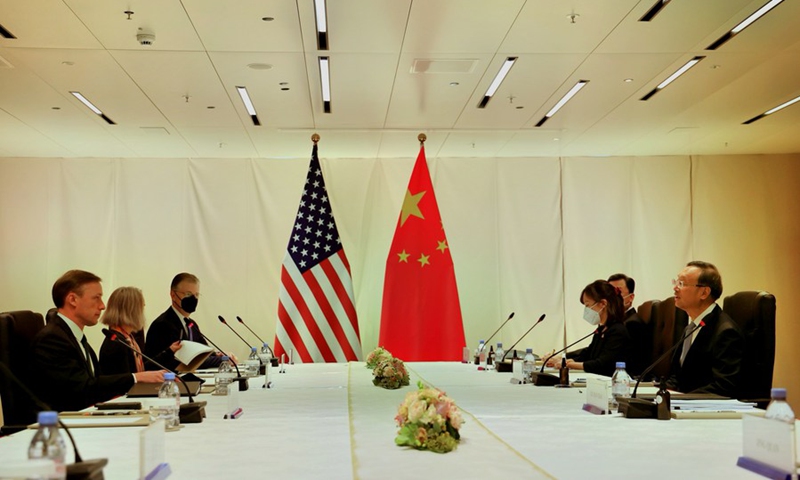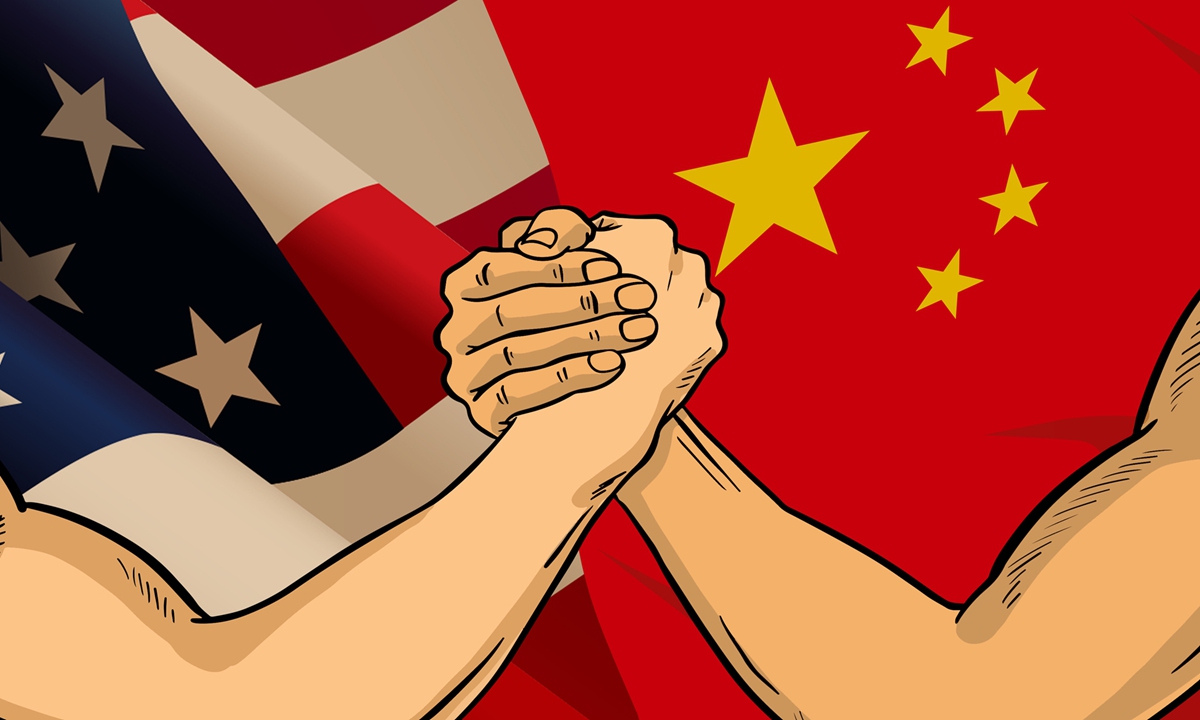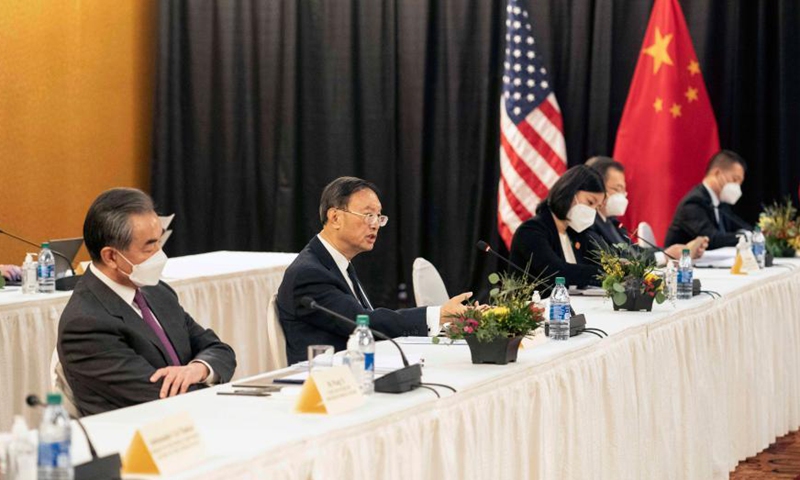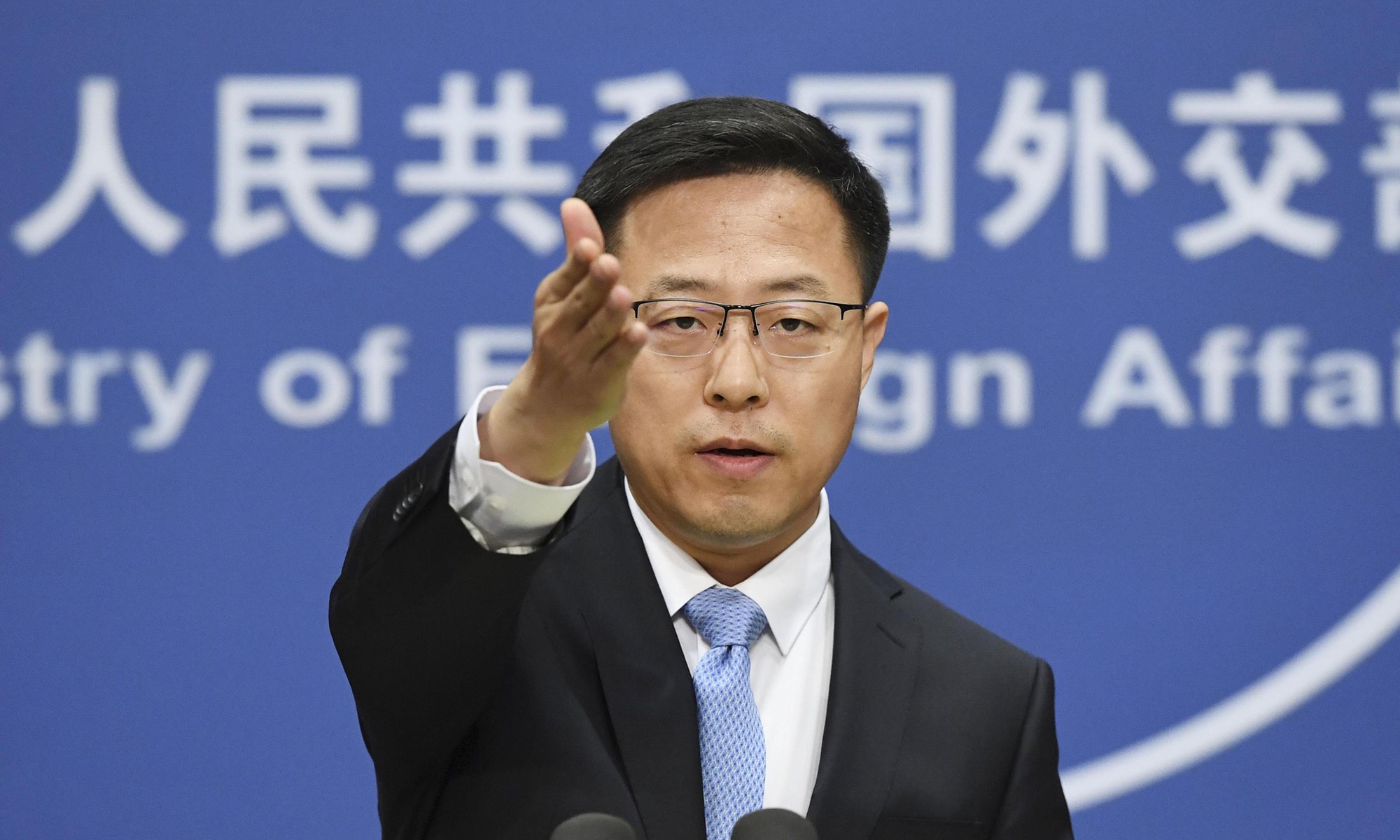https://youtu.be/YXr62g1ltaY
China And America Had A Talk In Zurich, Will There Still Be A Cold War?
https://youtu.be/KBOXR-HFX8w
China does not make principled concessions and insists on doing its own thing well. This fundamental strategy is getting results: Editor-in-Chief Hu Xijin #HuSays
https://youtu.be/hhY5J0iUa_s
'Constructive' China-U.S. Talks: An Icebreaker?

Yang Jiechi (1st right), a member of the Political Bureau of the Communist Party of China (CPC) Central Committee, met Wednesday with US National Security Advisor Jake Sullivan (1st left) (Photo: Xinhua)
On Wednesday, Yang Jiechi, Member of the Political Bureau of the CPC Central Committee and Director of the Office of the Central Commission for Foreign Affairs, met with US National Security Advisor Jake Sullivan for six hours of talks in Zurich, Switzerland. The press releases issued by both sides were more positive in their respective contexts. This suggests that the meeting was productive.
Both sides have talked about implementing the spirit of the phone call between Chinese and US heads of state on September 10. There were no negative descriptions and accusations against the other side in both public press releases. There was only more subtle language about the differences between the two countries. US officials told the media that the two sides also discussed the possibility of a video meeting between the two heads of state by the end of this year.
However, if we compare the press releases from both sides, there are serious differences between the two countries that can still been seen. Yang stressed that China opposes defining China-US relations as "competitive." He advocated that the US side should have a deep understanding of the mutually beneficial nature of the bilateral relations and correctly understand China's domestic and foreign policies and strategic intentions. However, Washington's press release mentioned "competition" twice in the US' usual context. It has also used the wording of "responsible competition" as in the US' several recent statements and emphasized managing risks.
It is obvious that Washington's strategic definition of the China-US relations and the basic thinking behind their policy toward Beijing remains the same. The State Department's press release emphasized that it will continue to invest in US national strength and work closely with allies and partners. This is the same as the US' oft-repeated theme of speaking "from a position of strength" and strengthening the alliance system to compete fiercely with China.
However, the US side has recently talked less about "confrontation" along with competition and cooperation. It has been repeatedly emphasizing that it does not want to see a "new Cold War." It wants to prevent competition from escalating into confrontation. US Trade Representative Katherine Tai also said that the US does not pursue decoupling, but is willing to a "recoupling" on a new basis. In addition, it is also obvious that the US side's attitude toward China has been adjusted. Examples include the release of Meng Wanzhou and Washington getting ready to restart the China-US economic and trade consultations and other actions and positive statements.
China's fundamental strategy of not making principled concessions and insisting on doing its own thing is taking effect. The US side always says it wants to speak "from a position of strength," but its strength is far from sufficient to achieve its ambitions to contain China's development. The US has been hit hard by the COVID-19 epidemic, which has killed more than 700,000 people so far. It has not only plunged the US economy deeper into abusing stimulus mode, but also exposed the fundamental weaknesses of the US system and weakened its global influence.
By strengthening its alliance system, the US has mainly roped in Australia and Japan. In the past, Canberra and Tokyo used Washington's power to intimidate other countries. But now, it seems to be the other way around. The US' comprehensive offensive against China has quickly shown signs of fatigue.
To some extent, the reality has taught Washington a crisp lesson. The US has to alleviate some conflicts with China which are out of its ability. It also adjusted the pace of its China policy. At a time when anti-China public opinion is rampant in the US, the room for such adjustments is limited. Public announcements will be particularly restricted by domestic US politics. Therefore, Chinese people should not have illusions about the Biden administration's change of course. We should use our own solid actions to increase our firm leading power in China-US relations.
It must be noted that we have strong endurance in sticking to the current path toward the US. The US strategy toward China is very imaginative, but it cannot be supported by its ability. While the US is repeatedly discussing infrastructure construction, China's infrastructure construction has taken another step forward. The US' alliance system is becoming more and more complicated. For example, Paris, its traditional ally, is angry with Washington. Berlin is still going against Washington's will on the Nord Stream 2 deal. The US' failure in Afghanistan has made all of Washington's allies bitterly disappointed.
The US cannot achieve these deeds effortlessly. However, China can accumulate strategic initiatives by doing its own things well. China follows a pragmatic and reliable path.
We hope to see China-US relations find constructive changes. However, there are still many obstacles for the two sides to move closer in terms of their perceptions and expectations toward each other. The US has a deep hegemonic mindset, and it won't engage in reflection unless it fails. China must, by doing its own things well, make the US realize that ultimately it is impossible to contain China's development. By sticking to this approach and direction, US' China policy will gradually adapt to reality. The US will seek maximum interests by exploring coexistence and cooperation with China
After a fierce, tit-for-tat opening, the close-door strategic dialogue afterward between China and the US in Alaska went
Related posts:
Major progress for China’s diplomacy as US heeds call from Chinese request list to release Meng Wanzhou
HUAWEI CFO Meng Wanzhou leaves Canada for motherland after sustained efforts by Chinese government
China-US high level strategic dialogue: Chinese diplomats deal vigorous counterblows to condescending US representatives; common ground hard to reach on contrasting logics
中美高层战略对话在即 美不行待客之道 中方严正回应! 20210319 |《今日关注》CCTV中文国际 中国核心利益没有退让余地 中美需避免零和博弈管控分歧 20210320 |《今日关注》CCTV中文国际

China's tough stance in Alaska turns heads
THE GLOCALISATION OF HUMANITY
Moral vacuum at the heart of modernity, now embodied in US laws!
` ` MAN and nature are running out of time. That’s the core message of the UN Inter-governmental Panel on Climate Change ...

Moral vacuum at the heart of modernity, now embodied in US laws!







No comments:
Post a Comment